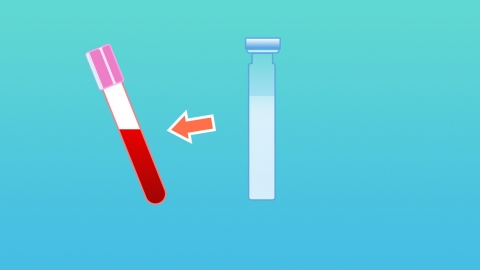What does low high-density lipoprotein cholesterol indicate?
Generally, low levels of high-density lipoprotein (HDL) cholesterol may be caused by long-term high-sugar and high-fat diets, lack of physical activity, obesity, type 2 diabetes, hypothyroidism, and other factors. It is recommended to seek timely medical consultation to identify the underlying cause and receive symptomatic treatment under a doctor's guidance. Detailed analysis is as follows:

1. Long-term high-sugar and high-fat diet: Excessive consumption of fried foods and sweets in daily life may inhibit HDL cholesterol synthesis, leading to reduced levels. Adjusting dietary patterns, reducing intake of high-sugar and high-fat foods, and consuming more vegetables and fruits such as celery, spinach, and blueberries, as well as foods rich in unsaturated fatty acids like salmon and oats, can gradually improve these indicators.
2. Lack of physical activity: Prolonged sitting and insufficient exercise can slow down the body's metabolic rate, affecting the production and transport of HDL cholesterol. It is recommended to engage in 150 minutes of moderate-intensity physical activity per week, such as brisk walking, swimming, or cycling, with each session lasting about 30 minutes, to help increase HDL cholesterol levels.
3. Obesity: Excess weight, especially abdominal obesity, can interfere with lipid metabolism, causing a decrease in HDL cholesterol levels, which may be accompanied by symptoms such as weakness and excessive sleepiness. In addition to controlling diet and increasing physical activity, medications such as orlistat capsules, metformin hydrochloride tablets, and liraglutide injections may be used under medical supervision to assist with weight loss and improve metabolic conditions when necessary.
4. Type 2 Diabetes: Poor long-term control of blood glucose levels can damage vascular endothelial cells and affect lipid metabolism, leading to reduced HDL cholesterol levels. This condition is often accompanied by symptoms such as increased thirst and frequent urination. Patients should follow medical advice to use medications like insulin injections, glimepiride tablets, and empagliflozin tablets to control blood sugar levels, along with dietary and exercise interventions to help improve HDL cholesterol levels.
5. Hypothyroidism: Insufficient secretion of thyroid hormones leads to a slower metabolism and reduced lipid clearance capacity, resulting in decreased HDL cholesterol levels. Symptoms may include cold intolerance, fatigue, and weight gain. Patients may follow medical advice to use medications such as levothyroxine sodium tablets, thyroid extract tablets, or L-thyroxine sodium tablets to supplement thyroid hormones, regulate metabolism, and improve lipid profiles.
In daily life, maintaining a regular sleep schedule, avoiding late nights, quitting smoking, limiting alcohol consumption, and reducing mental stress are important. Regular monitoring of blood lipid levels and timely adjustment of intervention strategies according to indicator changes are essential for maintaining lipid metabolic balance.






